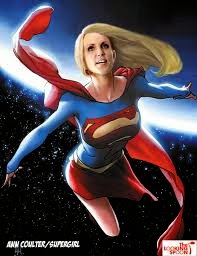This morning on a lovely walk down one of the long country roads that surround me, I thought about my yearning for exactly this sort of life. That was when I lived in the city and long country walks didn't happen often. My husband and I both yearned for the rural life with a small acreage to grow some crops and the peace and quiet and slower days that came with this lifestyle.
Now that I have it, I'm still yearning for something that didn't quite manifest for us. Perhaps that's why I have book characters following a similar path. Except they're a lot younger and have a lot more money. Both of those things are important tools to fulfilling dreams.
But youth and money and even time aren't enough, and to that end, I started really exploring my protagonists' very deepest yearnings.
When I first met my hero and heroine, I knew their story would be about a shared vision, more than working out personal conflicts. They are both stable and successful people, each without the other. They don't really have strong needs that require another person. Or so I thought.
But I didn't get very far into writing the first book, when Lindsay Calhoun told me very clearly what his life was about: creating his kingdom. And taking care of his subjects which included the queen. That's why working as a principle attorney at the family law firm was never enough - his father was the king, and he would always be no more than a prince.
The heroine, who in this modern story is a successful psychologist and writer, doesn't have a strong urge for family, at least not until she marries.Then giving her husband a child becomes paramount, and her heartbreaking miscarriages from book-to-book, accelerate her fundamental desire to fulfill the queenly role - bringing forth an heir to the throne. This despite their shared belief that limiting population growth is of vital importance to the health of the planet. The fundamental yearnings of nature will not be denied.
Talk about getting down to basics!
I got in touch with these deep, inner urges reading Robert Olen Butler's excellent fiction-writing how-to:
In the author's words:
Yearning seems to be at the heart of what fiction as an art form is all about. It’s based on the fact that fiction is a temporal art form—it exists in time—and it’s also an art form about human beings and their feelings. Any Buddhist will tell you that as a human being on this planet, you can’t exist for even thirty seconds without desiring something. My favorite word is yearning because it suggests the deepest level of desire. My approach [to teaching writing] tries to get at essential qualities of process for the aspiring artist beyond what is inherent in the study of craft and technique. This notion of yearning has its reflection in one of the most fundamental craft points in fiction: plot. Because plot is simply yearning challenged and thwarted.Read more about this author and the fiction writing process in an interview at Fiction Writers Review.
Now off to continue building my book kingdom, and challenging the yearnings through thwarted plots!
How's your book coming along? I'm not anywhere close to my word count goal for Camp NaNoWriMo, but it looks like I'll complete the A-Z Challenge with flying colors! Thank you all for visiting during the month. My blog hits are 5X higher than usual.


















































